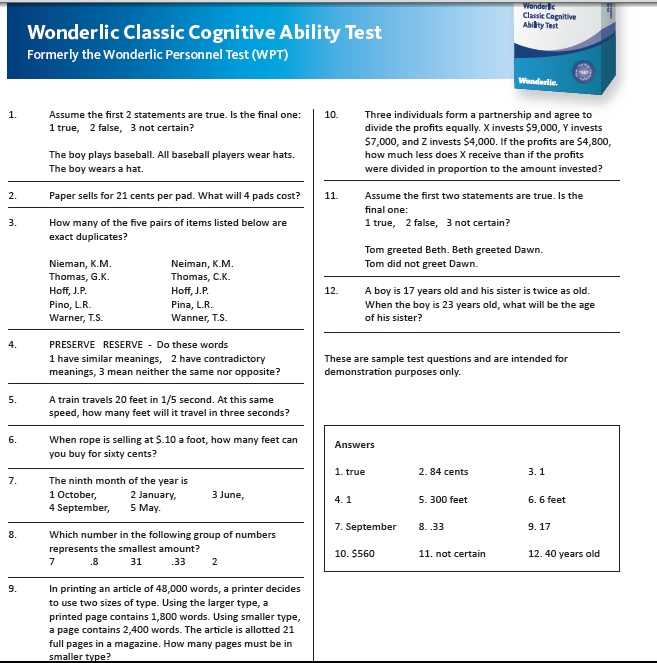
Many employers use skill evaluation tests to measure a candidate’s mental agility, problem-solving capabilities, and ability to perform under pressure. These assessments are designed to gauge a person’s cognitive abilities and overall aptitude, helping organizations make informed decisions during the hiring process.
While each test may vary in format and content, the goal remains the same: to assess how quickly and accurately a candidate can process information. Understanding the structure of these tests and preparing effectively can significantly improve performance and enhance your chances of success in competitive job markets.
Effective preparation for such tests involves mastering strategies to boost both speed and accuracy. By familiarizing yourself with common question types and practicing under timed conditions, you can strengthen your mental flexibility and increase your overall test-taking confidence.
Wonderlic Exam Overview
This type of assessment is commonly used by employers to evaluate a candidate’s cognitive abilities, including reasoning, problem-solving, and comprehension skills. The test is designed to provide a quick snapshot of how well an individual can process information and apply it in various scenarios, which is crucial for many job roles.
The structure typically includes a variety of question types that measure different aspects of intelligence, such as numerical reasoning, verbal comprehension, and logical problem-solving. Candidates are often required to answer within a set time limit, adding an element of pressure that tests not only knowledge but also the ability to perform efficiently under stress.
Understanding the format and types of questions asked in these assessments can be highly beneficial for anyone preparing for such a challenge. While the test may seem daunting at first, familiarity with the common formats and the ability to practice effectively can significantly improve performance and outcomes.
What is the Wonderlic Test
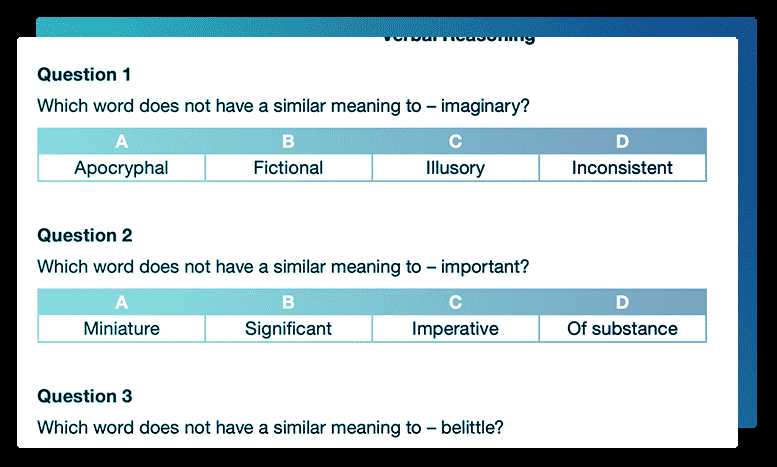
This assessment is a widely used tool to measure a candidate’s cognitive capacity, focusing on quick thinking, problem-solving, and learning potential. Employers often rely on this type of test to gain insights into an individual’s ability to process information and perform tasks efficiently in fast-paced environments.
The test typically consists of a series of timed questions designed to assess various cognitive skills. These may include:
- Verbal reasoning: Understanding and interpreting written information.
- Numerical reasoning: Solving math-related problems.
- Logical reasoning: Identifying patterns and relationships between concepts.
- Abstract thinking: Evaluating information without the need for prior knowledge.
Candidates are expected to complete the test within a limited timeframe, which adds an element of pressure and helps evaluate their ability to work under stress. While there is no universal standard for scoring, higher scores typically indicate better cognitive flexibility and problem-solving abilities.
Importance of Wonderlic Scores
Scores from cognitive ability assessments play a crucial role in helping employers evaluate a candidate’s potential. These scores reflect how well an individual can process information, solve problems, and adapt to new situations, which are essential traits for success in many professional roles.
While a high score is not always a guarantee of job success, it serves as a strong indicator of a person’s ability to handle tasks that require quick thinking and decision-making. Employers often use these results to identify individuals who can perform well in high-pressure environments or those requiring a high level of mental agility.
In addition, scores can help employers make more objective comparisons between candidates. When hiring for roles where cognitive skills are a significant factor, these assessments provide valuable insight into an applicant’s strengths and weaknesses. However, it is important to remember that these results are just one piece of the overall hiring process.
Common Types of Wonderlic Questions
The questions in these cognitive assessments are designed to evaluate various mental abilities. They are typically structured to test how well a person can process information quickly and accurately under time constraints. The types of questions can vary, but they generally fall into a few key categories:
- Verbal reasoning: These questions assess the ability to understand and interpret written information, including vocabulary, grammar, and comprehension.
- Mathematical reasoning: These questions focus on solving mathematical problems, often involving basic arithmetic, percentages, and number patterns.
- Logical reasoning: These questions test the ability to identify patterns, sequences, and relationships between different elements or concepts.
- Abstract reasoning: These questions evaluate one’s ability to think critically and solve problems that don’t rely on prior knowledge or learned information.
Familiarity with the different question types can help candidates prepare more effectively and manage their time during the assessment.
How to Approach the Test
Successfully completing a cognitive ability assessment requires more than just knowledge–it demands strategic thinking and effective time management. By understanding the test format and preparing accordingly, you can improve your chances of performing well under pressure.
One of the most important steps is to stay calm and focused throughout the process. Managing your time wisely and being prepared for the different types of questions will help you maintain clarity and efficiency. Here are some helpful tips on how to approach the test:
| Tip | Description |
|---|---|
| Understand the Format | Familiarize yourself with the structure of the test so you know what to expect in each section. |
| Practice Time Management | Set time limits for each question type during practice to help manage your pacing during the actual test. |
| Prioritize Easy Questions | Start with the questions you find easiest to build confidence and save time for the more difficult ones. |
| Stay Calm Under Pressure | Take deep breaths and stay calm, even when faced with challenging questions, to ensure you don’t make careless mistakes. |
By approaching the test with a clear strategy, you can significantly increase your ability to answer questions efficiently and accurately.
Tips for Improving Speed and Accuracy
In cognitive assessments, being able to answer quickly and accurately is crucial. The time constraints often make it necessary to develop strategies that allow you to work efficiently while avoiding mistakes. Here are some practical tips to help improve both speed and precision during the test:
Effective Practice Techniques
Practicing regularly under timed conditions is one of the best ways to enhance both your speed and accuracy. By simulating the test environment, you can train your brain to think quickly and reduce the chances of making errors.
- Set a timer during practice sessions to get used to the pressure of time limits.
- Practice solving questions from various categories to build a diverse skill set.
- Review your answers after each session to identify patterns in mistakes and areas for improvement.
Strategies for Maximizing Performance
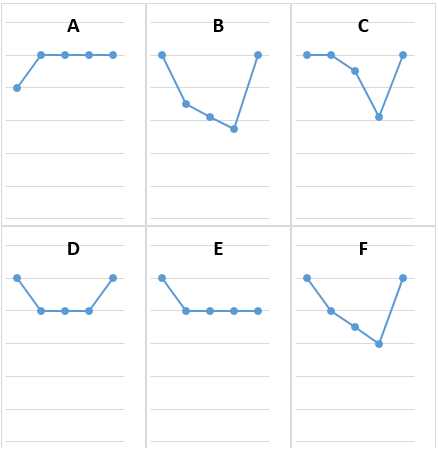
During the test, employing certain strategies can help you stay focused and work more efficiently, ensuring that you complete as many questions as possible while maintaining accuracy.
- Skip and return: If a question feels too difficult, move on and return to it later. This ensures that you don’t waste too much time on one question.
- Read carefully: Quick reading can lead to mistakes. Always take a moment to understand the question before answering.
- Stay calm: Stress can slow you down and affect accuracy. Take a few deep breaths if you feel overwhelmed.
By combining consistent practice with smart strategies, you can significantly improve your performance on these types of assessments.
Understanding the Scoring System

The scoring system for cognitive ability tests is designed to measure how well a person performs under time constraints and assesses their ability to process and analyze information. Understanding how these scores are calculated can help you interpret your results and gauge your performance in relation to others.
In general, scores are based on the number of correct answers within a specific time limit. However, the exact way the scores are presented may vary depending on the specific test format. The score typically represents how quickly and accurately a person can complete the tasks compared to a benchmark group.
It’s important to note that higher scores usually indicate better performance in terms of cognitive speed and accuracy, but the scoring does not just reward raw knowledge. It also factors in problem-solving ability and logical reasoning, which can be more critical in some job roles than sheer information recall.
What Employers Look for in Scores
When evaluating the results of cognitive ability tests, employers focus on several key factors that reflect a candidate’s potential to succeed in a given role. These scores provide insights into a person’s capacity for quick thinking, problem-solving, and decision-making, which are essential in many fast-paced work environments.
One of the primary aspects employers examine is the overall speed at which a candidate answers questions, as it demonstrates mental agility. However, it is equally important to maintain accuracy, as employers value candidates who can make sound decisions while under time pressure. A balance of both speed and precision is often seen as a sign of a strong cognitive skill set.
Additionally, employers often look for scores that align with the requirements of the specific role. For example, jobs requiring complex problem-solving may place more emphasis on logical reasoning scores, while roles focused on communication may prioritize verbal reasoning skills. Each employer will have different expectations, but understanding the scoring system and the traits it reflects can help candidates better prepare for these assessments.
Test Practice Resources
Preparing for cognitive ability assessments can greatly improve performance, especially when using the right study materials. With various online tools and practice tests available, candidates can enhance their skills and become more familiar with the types of questions they will encounter. These resources are designed to help individuals build confidence and work efficiently under timed conditions.
Online Practice Tests
One of the most effective ways to prepare is by taking practice tests. Many websites offer mock tests that simulate the real assessment environment. These practice tests allow you to:
- Familiarize yourself with question formats.
- Practice under time constraints.
- Identify areas that require improvement.
Books and Study Guides
For those who prefer offline resources, numerous books and study guides are available to help with preparation. These guides often include:
- Detailed explanations of each question type.
- Practice questions and answers with step-by-step solutions.
- Tips for managing time and staying calm during the test.
Using a combination of online resources and printed materials can provide a well-rounded approach to preparation, ensuring you are ready for any challenge the test may present.
How to Study Effectively
Effective studying is not just about spending hours reviewing material–it’s about using your time wisely and focusing on the most impactful strategies. To perform well on cognitive assessments, you need to develop a structured study routine that maximizes both learning and retention. By understanding the best methods and approaches, you can ensure you’re prepared and confident on test day.
One key factor in successful preparation is setting clear goals and following a study plan. Prioritize areas that challenge you most, and avoid overloading your brain with too much information at once. Consistent, focused practice with a balanced approach will yield better results than cramming the night before.
| Study Tip | Description |
|---|---|
| Set Clear Goals | Identify the areas that need the most improvement and set specific, measurable goals for each study session. |
| Practice Regularly | Consistency is key. Dedicate time each day to practice under timed conditions to simulate the real assessment. |
| Use Active Recall | Test your knowledge by actively recalling information rather than just reading. This strengthens memory retention. |
| Take Breaks | Take short breaks during study sessions to avoid burnout and keep your mind fresh and alert. |
By following these strategies and sticking to a structured routine, you will improve both your speed and accuracy in answering questions, enhancing your chances of success.
Common Mistakes to Avoid
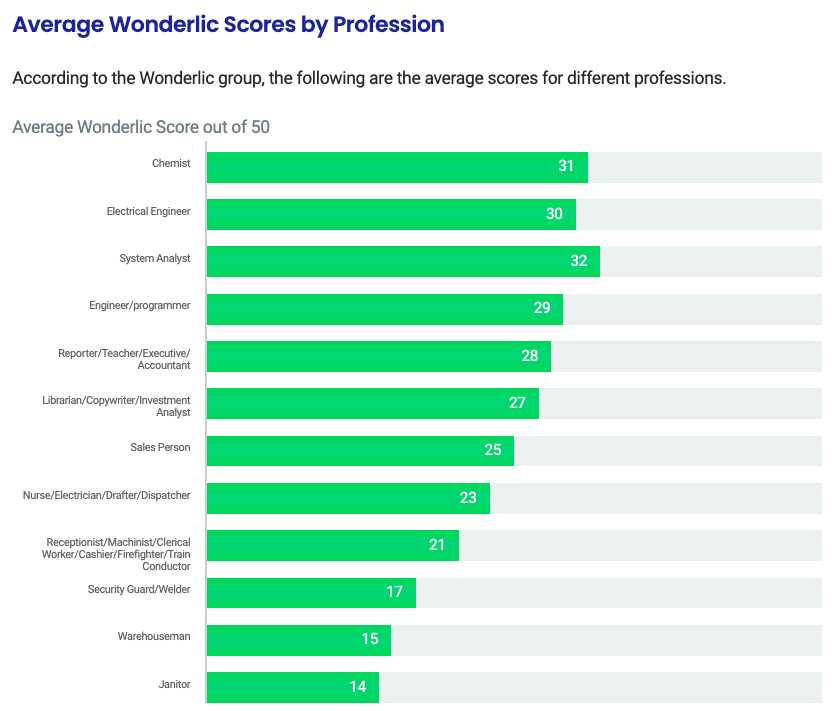
When preparing for cognitive assessments, many individuals make common mistakes that can significantly impact their performance. Being aware of these errors can help you avoid them and maximize your chances of success. Whether it’s a lack of preparation, poor time management, or failing to read questions carefully, these mistakes can all hinder your progress during the test.
- Rushing Through Questions: Trying to answer too quickly often leads to careless mistakes. Take your time to read each question carefully and think through your response.
- Overthinking: While it’s important to carefully consider each question, overthinking can waste valuable time. Trust your instincts and avoid second-guessing yourself too often.
- Skipping Difficult Questions: While it’s okay to move on from a tough question and return to it later, don’t skip questions without giving them a fair attempt. You might be able to solve them with a fresh perspective.
- Neglecting Practice: Failing to practice regularly under timed conditions can leave you unprepared for the real test. Consistent practice is crucial to improving your performance.
- Not Managing Time Properly: Time management is key during these assessments. Allocate your time wisely, ensuring you don’t spend too much time on any one question at the expense of others.
By avoiding these common mistakes, you can approach the test with confidence and improve your overall performance.
Can You Find Test Answers Online?
As the demand for cognitive ability assessments increases, many individuals search for ways to find test solutions online. While there are numerous websites offering practice questions and even direct solutions, relying on these resources is not always the best approach. While some sites provide valuable preparation materials, others may mislead you or offer answers that are not representative of the real test environment.
It’s important to recognize that using external resources to simply obtain solutions may hinder your overall performance. The goal should be to improve your reasoning and problem-solving skills, not just memorize answers. By focusing on understanding the underlying principles and practicing regularly, you can better prepare yourself for the challenges you will face during the test.
Additionally, some test platforms may take action against individuals who attempt to cheat or rely heavily on pre-printed answers. It’s essential to approach these resources with caution and focus on improving your cognitive abilities in a legitimate and productive way.
Preparing for the Cognitive Assessment
Effective preparation is key to performing well on cognitive assessments. These tests evaluate problem-solving abilities, logical thinking, and the speed at which you can process information. To succeed, it’s important to approach your preparation with a clear plan, practicing regularly and focusing on key areas that may appear on the test.
One of the best ways to prepare is by familiarizing yourself with the structure of the assessment. Understanding the types of questions you’ll encounter, the timing constraints, and the format can help reduce anxiety and improve your overall performance. Practice tests that mimic real testing conditions are especially useful for building confidence and improving speed.
In addition to taking practice tests, it’s important to develop strategies for managing your time efficiently. Make sure to pace yourself throughout the test, ensuring you don’t spend too much time on any single question. Identifying the more difficult questions and tackling them strategically can help you maximize your score.
How to Stay Calm During the Test
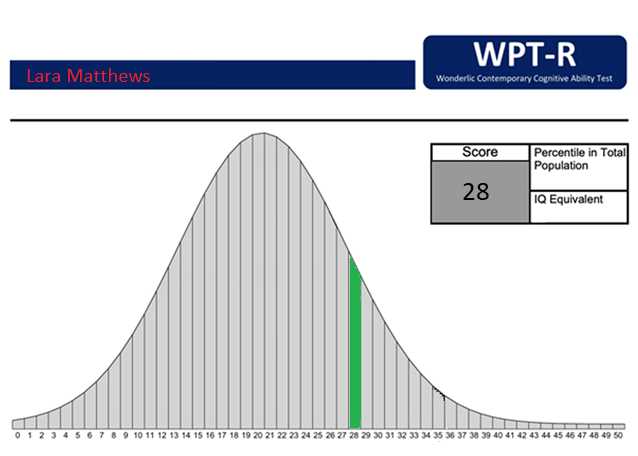
Staying calm during a cognitive assessment is crucial for performing at your best. Anxiety and stress can negatively affect your thinking and decision-making abilities, so it’s important to manage these emotions before and during the test. There are several strategies that can help you maintain composure and focus when the pressure builds up.
- Practice Deep Breathing: Taking slow, deep breaths helps reduce stress and clears your mind. Practice deep breathing exercises before the test so it becomes second nature during stressful moments.
- Stay Positive: A positive mindset can do wonders for your confidence. Remind yourself that you are well-prepared and capable of handling the challenge ahead.
- Time Management: Avoid rushing through the test. Allocate time for each section and ensure you pace yourself. If you find a question difficult, move on and return to it later if time allows.
- Visualize Success: Take a moment to close your eyes and visualize yourself calmly answering questions. Visualization can help reduce anxiety and increase your focus.
- Take Breaks When Possible: If the test allows short breaks, use them to stretch or relax for a few moments. This can help reduce tension and refocus your mind for the next set of questions.
By implementing these techniques, you can approach the assessment with a clear mind, boosting both your performance and overall experience.
Explaining Cognitive Assessment Results to Employers
After completing a cognitive ability test, understanding and communicating the results to potential employers is an important step in the recruitment process. The test scores can provide employers with valuable insights into your problem-solving, reasoning skills, and mental agility. However, it’s essential to present your results in a way that emphasizes your strengths and demonstrates your ability to apply the skills assessed in real-world scenarios.
When discussing the results with an employer, focus on the context behind the scores. Explain how the test reflects your cognitive abilities and how they align with the job requirements. It’s also helpful to mention any preparation you undertook, showcasing your commitment to improving your skills.
| Score Range | Implication |
|---|---|
| Above Average | Indicates strong cognitive skills and the ability to quickly grasp complex concepts and solve problems efficiently. |
| Average | Suggests solid reasoning abilities and the potential to perform well in roles that require analytical thinking. |
| Below Average | While not indicative of low potential, it may suggest that further training or experience is needed for certain complex tasks. |
Additionally, always maintain a positive tone when discussing your results. If your scores are not as high as expected, focus on your strengths and the areas you are actively working to improve. Employers value transparency and self-awareness, which can enhance your credibility as a candidate.
How Cognitive Assessments Impact Job Opportunities
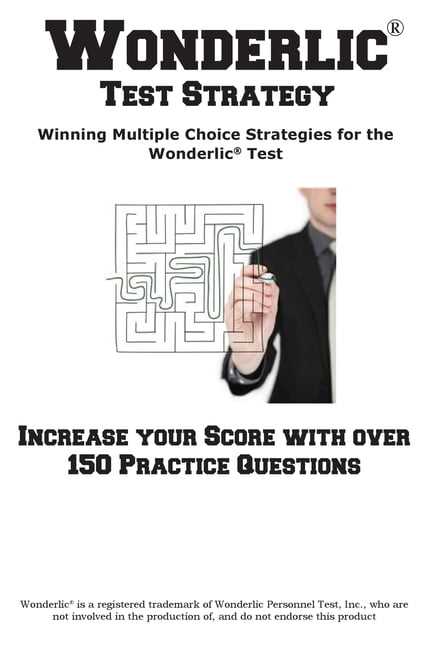
Cognitive ability tests play a significant role in shaping employment prospects by offering a way to evaluate a candidate’s mental aptitude and problem-solving abilities. Many companies use these assessments to gauge a candidate’s potential for specific job roles. The results help employers assess whether an individual has the cognitive skills required to perform tasks effectively and adapt to new challenges.
For job seekers, performing well on such assessments can enhance job prospects, as employers often consider these results alongside other qualifications. A strong score can indicate that a candidate is quick to learn, adaptable, and able to handle complex tasks in a fast-paced work environment. However, it’s important to remember that while these assessments are a useful tool, they are only one part of the hiring process.
- Increased Opportunities: High scores may open doors to positions requiring high cognitive abilities, such as leadership roles or technical jobs.
- Competitiveness: Strong results can give you a competitive edge in industries where cognitive agility and problem-solving are highly valued.
- Job Fit: Scoring well can help employers identify you as a good fit for the role, increasing the likelihood of being shortlisted for interviews.
- Development Potential: Even if a score is average, it may demonstrate your potential for growth, as many employers are interested in employees who are keen to improve.
On the other hand, candidates with lower scores might need to address the results with prospective employers, either by explaining their context or emphasizing other strengths. Regardless, a positive attitude toward learning and self-improvement can mitigate concerns about lower performance on cognitive tests.
Next Steps After Completing the Test
Once you’ve finished a cognitive assessment, it’s important to understand what comes next in the process. Completing the test is just one part of the overall evaluation, and the next steps will help you prepare for the outcome, regardless of whether the results are favorable or not. The actions you take after the assessment can influence your chances for success in the hiring process.
Wait for the Results: After submitting your answers, the next step is to wait for the results. Most companies use automated systems to score the tests, and you may receive feedback relatively quickly. Some employers may also combine your test results with other evaluation methods, such as interviews or skill assessments, to make a final decision.
Reflect on Your Performance: Take some time to think about how you approached the test. Were there any sections where you felt uncertain or challenged? Reflecting on your performance can help you identify areas for improvement, which can be beneficial for future assessments.
Prepare for the Next Stage: If the next stage involves an interview or further assessments, start preparing in advance. Review the job description again to better understand the skills and qualifications the employer values most. Practice answering common interview questions, and be ready to discuss your test results if needed.
Stay Positive: Regardless of the outcome, it’s crucial to maintain a positive mindset. If the results are less than expected, view it as an opportunity for growth. Employers are often looking for candidates who are resilient, open to learning, and capable of handling challenges. Take any feedback you receive constructively, and use it to improve for future opportunities.
Keep an Eye on Other Opportunities: While waiting for feedback from one employer, continue to explore other opportunities. Applying to multiple positions increases your chances of finding the right fit, and it can keep you motivated throughout the job search process.